Search
Search Results
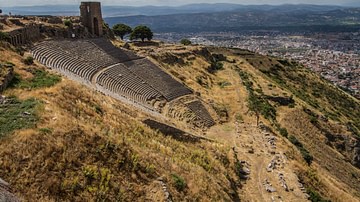
Definition
Pergamon
Pergamon (also Pergamum) was a major intellectual and cultural center in Mysia (northwest Asia Minor, modern-day Turkey) which flourished under the Attalid Dynasty (281-133 BCE) during the Hellenistic Period. It was the capital of the Kingdom...
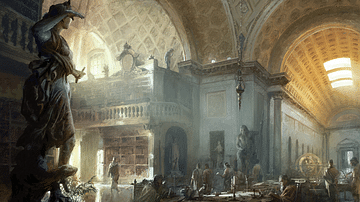
Definition
Library of Pergamon
The Library of Pergamon was established in the city of Pergamon (also Pergamum) by the Attalid King Eumenes II (r. 197-159 BCE) and became the most famous and well-respected center of learning after the Library at Alexandria, Egypt. The library...
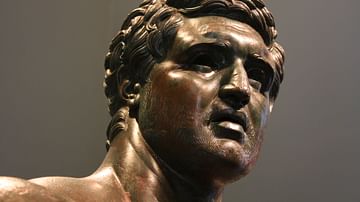
Definition
Attalid Dynasty
The Attalid Dynasty ruled an empire from their capital at Pergamon during the 3rd and 2nd centuries BCE. Fighting for their place in the turbulent world following the death of Alexander the Great, the Attalids briefly flourished with Pergamon...
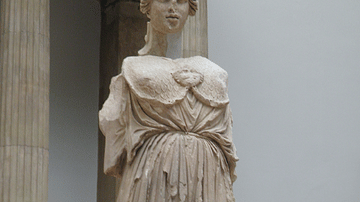
Image
Athena from the Library of Pergamon
A statue of the Greek goddess Athena from the Library of Pergamon. 200-150 BCE. Height: 310.5 cm. (Pergamon Museum, Berlin)
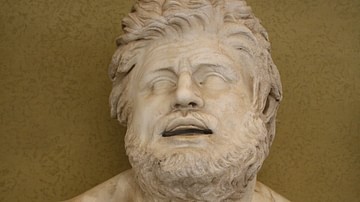
Article
Conflict & Celts: The Creation of Ancient Galatia
Galatia was the most long-lasting and powerful Celtic settlement outside of Europe. It was the only kingdom of note to be forged during the Celtic invasions of the Mediterranean in the 4th and 3rd centuries BCE. From its foundation, Galatia...
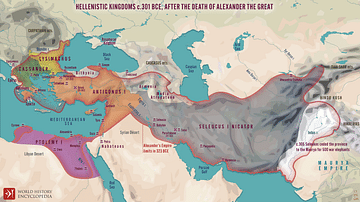
Definition
Hellenistic Period
The Hellenistic Period is a part of the Ancient Period for the European and Near Asian space. The use of this period is justified by the extent of the Hellenic culture in most of these areas, due to the Greek political presence especially...
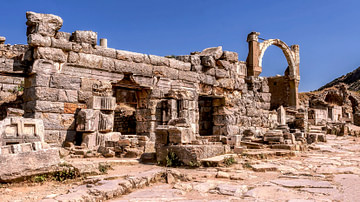
Definition
Ephesus
According legend, Ephesus (also Ephesos) was founded by the tribe of the Amazons, great female warriors. The name of the city is thought to have been derived from "Apasas", the name of a city in the "Kingdom of Arzawa" meaning the "city of...
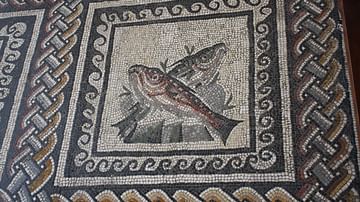
Article
Roman Mosaics
Roman mosaics were a common feature of private homes and public buildings across the empire from Africa to Antioch. Not only are mosaics beautiful works of art in themselves but they are also an invaluable record of such everyday items as...
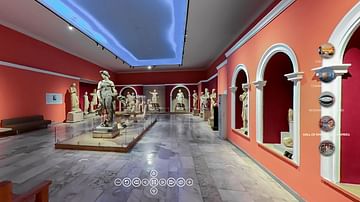
Article
10 Virtual Tours of Archaeological Sites & Museums in Turkey
Thanks to the new Sanal Muze digital portal released by the Ministry of Culture and Tourism of Turkey in 2020 CE, history lovers and art enthusiasts can now take virtual tours of Turkey's best archaeological sites and museums. There are currently...
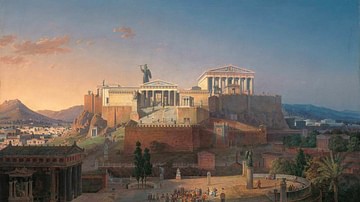
Article
The Rise of Cities in the Ancient Mediterranean
The history of the ancient world has always been told as a history of cities, from Homer's epic poems about events just before and just after the sack of Troy, through the prose histories of wars between Athens and Sparta, Rome and Carthage...